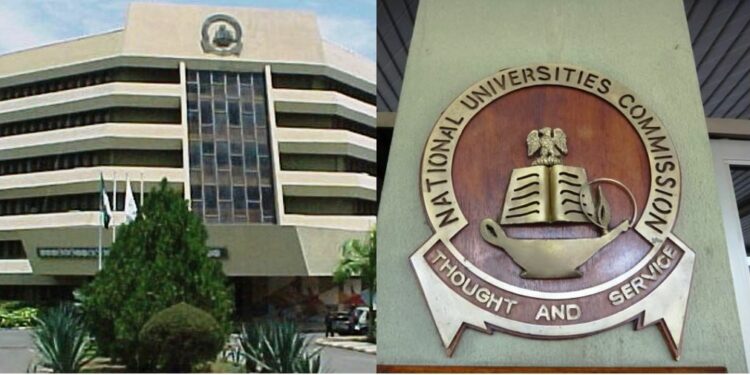- Maiyaki outlined the commission’s process, involving subject experts assessing standards, environments, and available resources, with the results forming the basis for communication to JAMB, NYSC, TETFund, and the public
The National Universities Commission (NUC) cautioned universities against compromising during accreditation visits, emphasizing potential revocation of program approval.
Chris Maiyaki, the acting executive secretary, stressed the importance of meeting minimum academic standards and resource assessment benchmarks.
Maiyaki outlined the commission’s process, involving subject experts assessing standards, environments, and available resources, with the results forming the basis for communication to JAMB, NYSC, TETFund, and the public.
“We send to NYSC so that when the students finally are to graduate, there will be nothing like whether they are illegal or not. Then, we give a symbol of authority, and that is the major quality assurance measure to be or not to be.
“When we find you are falling short of the threshold, you cannot proceed; when the approval matures, we then undertake accreditation, and accreditation is the major function and core mandate of the NUC,” Mr Maiyaki told journalists.
He said the right quality and fulfilment of the mandate of the philosophy of course content, among other conditions, be met before d a definite statement for accreditation would issued.
“After we issue the definite statement for accreditation and you are found to be consistent with non-performance, we will deny you accreditation.
“If you are short of a certain threshold, we give you interim accreditation. But, if we are to enable you to remedy the deficiencies and we return after two years, and you have interim accreditation again back-to-back, then you are considered to be denied accreditation.
“But if you have full accreditation, then you continue with the programme,” he said.
He said the commission had, in the past, suspended licences of operations of some private universities and even stopped some federal universities’ programmes to enable them to go back to the drawing board to right their wrongs.
“We came into being in 1962 as a small administrative and advisory unit in the cabinet office of the prime minister. At that time, there were just probably five universities.
“And between the advent of the University of Ibadan in 1958 till date, we have 270 universities; 61 federal public universities funded, 63 state-owned public funded, and 146 universities are private,” he added.










Discussion about this post